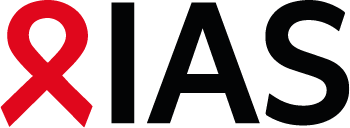Share Abstract
Assesment of a novel HIV rapid confirmatory assay: imunoblot rápido DPP® HIV 1/2
Abstract Content:
Background: Imunoblot Rápido DPP® HIV ½ (Bio-Manguinhos, Brazil) is a single-use immunocromatographic rapid test for the detection of individual antibodies (gp36, gp160, gp120, gp41 and p24) in whole blood, serum or plasma. DPP® assays presents two different paths: one for the sample and other for conjugated. The test takes less than 30 minutes to perform, results are visually read and it can differentiate an HIV-1 or 2 infection. The objective of this study was to evaluate the performance of the Imunoblot Rápido DPP® HIV ½ in a multi-center study in Brazil.
Methods: Following informed consent, whole blood was obtained from patients enrolled in five clinic centers from distinct regions of Brazil, and tested by the Imunoblot Rápido DPP® HIV ½ well as by a dual-immunoassay+WB algorithm that defined the reference standard for HIV infection. Obtained results were interpreted in accordance with the manufacturer´s instructions.
Results: A total of 964 samples were obtained: 139 (14.4%) were positive and 825 negative for HIV-1 antibodies according to the reference algorithm. Imunoblot Rápido DPP® was easy to perform. On examination by two different readers, discrepancies in band pattern interpretation were present in 1.38% of analyses; affecting the final interpretation. Consensus results were used for performance calculations. From 139 positive samples, 134 were positive and 4 indeterminate (clinical sensitivity: 96.4% (95% CI: 93.4-98.1)) Among HIV negative samples, the DPP assay gave indeterminate results in 3/825 samples but also gave “confirmed positive” results in 3/825 negative samples (clinical specificity: 99.3% (95% CI: 98.8-99.6)).
Conclusion: The reliability of the test was similar with most of confirmatory HIV tests commercially available. These results support the use of the Imunoblot Rápido DPP® as part of Brazil's national HIV test algorithm, as a rapid confirmatory test, which might facilitate expansion of VCT services and improve the efficiency in HIV results return.
Methods: Following informed consent, whole blood was obtained from patients enrolled in five clinic centers from distinct regions of Brazil, and tested by the Imunoblot Rápido DPP® HIV ½ well as by a dual-immunoassay+WB algorithm that defined the reference standard for HIV infection. Obtained results were interpreted in accordance with the manufacturer´s instructions.
Results: A total of 964 samples were obtained: 139 (14.4%) were positive and 825 negative for HIV-1 antibodies according to the reference algorithm. Imunoblot Rápido DPP® was easy to perform. On examination by two different readers, discrepancies in band pattern interpretation were present in 1.38% of analyses; affecting the final interpretation. Consensus results were used for performance calculations. From 139 positive samples, 134 were positive and 4 indeterminate (clinical sensitivity: 96.4% (95% CI: 93.4-98.1)) Among HIV negative samples, the DPP assay gave indeterminate results in 3/825 samples but also gave “confirmed positive” results in 3/825 negative samples (clinical specificity: 99.3% (95% CI: 98.8-99.6)).
Conclusion: The reliability of the test was similar with most of confirmatory HIV tests commercially available. These results support the use of the Imunoblot Rápido DPP® as part of Brazil's national HIV test algorithm, as a rapid confirmatory test, which might facilitate expansion of VCT services and improve the efficiency in HIV results return.
